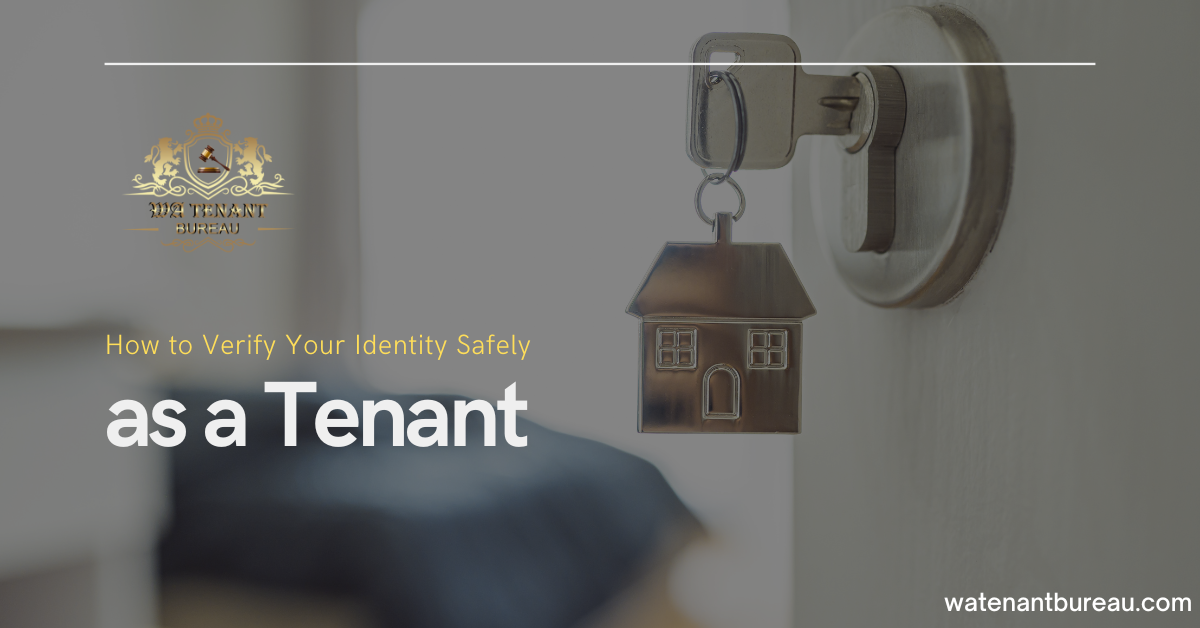Learn how to verify your identity safely as a tenant with the expert tips and guidance from WA Tenant Bureau. Discover the important steps to protect your personal information throughout the verification procedure.
In today’s digital age, in which identification robbery and fraud are prevalent, making sure the safety of your personal information is paramount, especially when it comes to the rental procedure.
As a tenant, you can come across diverse situations in which you need to verify your identity, such as applying for a rent or undergoing background checks.
However, sharing sensitive information may be risky if not done properly.
That’s why WA Tenant Bureau is right here to provide you with important guidance on how to verify your identity safely as a tenant.
1. Understand the Importance of Identity Verification:
Before delving into the procedure, it is critical to understand why identity verification matters.
Landlords and property managers request identity verification to verify your identity and check your reliability as a tenant.
This step facilitates them mitigate potential risks related to rental property, including rental charge defaults or property damage.
By verifying your identity, you establish trust and credibility with the owner, improving your probabilities of securing the favored rental property.
2. Know What Information is Typically Required:
When verifying your identity as a tenant, you will possibly be requested to provide certain documents and personal information.
Common necessities may also include:
– Government-issued photo identification (e.g., driver’s license, passport, or state ID card)
– Social Security number
– Proof of income (pay stubs, employment verification letter, or tax returns)
– Rental history (previous landlord references or rental payment records)
– Contact information (phone number, email address, and current address)
Understanding the particular documents and information wished in advance can streamline the verification procedure and save you needless delays.
3. Choose Reputable Platforms and Services:
When filing sensitive information for identity verification purposes, it is important to use reputable platforms and services.
Opt for established rental agencies, property management companies, or online rental platforms that prioritize data safety and privacy.
Research potential landlords or property managers to make sure they have a trustworthy reputation and adhere to legal regulations regarding data protection.
4. Be Cautious of Phishing Scams:
Beware of phishing scams disguised as identity verification requests.
Scammers may also impersonate landlords or property managers thru fraudulent emails or phone calls,
inquiring for sensitive information under false pretenses.
Always verify the authenticity of communication channels and never share personal information except you are assured about the legitimacy of the request.
If in doubt, contact the landlord or property management company directly using verified contact information.
5. Securely Transmit Information:
When submitting documents or information for identity verification, prioritize secure transmission methods.
Avoid sending sensitive information thru unencrypted email or text messages,
as those channels are vulnerable to interception through malicious third parties. Instead,
make use of secure online portals supplied through authentic rental platforms or hand-delivered documents directly to the landlord or property manager’s workplace whenever possible.
6. Protect Your Digital Devices and Accounts:
Safeguard your digital devices and accounts to save you unauthorized access to your personal information.
Enable security features including passcodes, biometric authentication,
and encryption to your smartphones, tablets, and computers.
Regularly update your software and antivirus programs to guard towards malware and cyber threats.
Additionally, use strong, unique passwords for online accounts related with rental applications and identity verification.
7. Monitor Your Credit Report:
Regularly monitor your credit report for any suspicious activity or unauthorized inquiries which could suggest identity theft.
Federal law entitles you to at least one free credit report annually from every of the 3 major credit score bureaus:
Equifax, Experian, and TransUnion.
Take advantage of this possibility to check your credit history and report any inaccuracies or fraudulent transactions promptly.
8. Educate Yourself on Data Privacy Laws:
Familiarize yourself with data privacy laws and regulations governing the collection
and handling of personal information in rental transactions.
Understanding your rights and responsibilities as a tenant can empower you to protect your privacy
and maintain landlords accountable for compliance with applicable laws.
Consult legal resources or seek guidance from tenant advocacy organizations when you have concerns about data privacy issues.
By following those expert tips from WA Tenant Bureau, you may navigate the identity verification procedure safely and protect your personal information as a tenant.
Remember that diligence and caution are key when sharing sensitive data, and prioritize security measures to safeguard against potential risks.
Your peace of mind and security are our top priorities as you embark on your rental journey.




